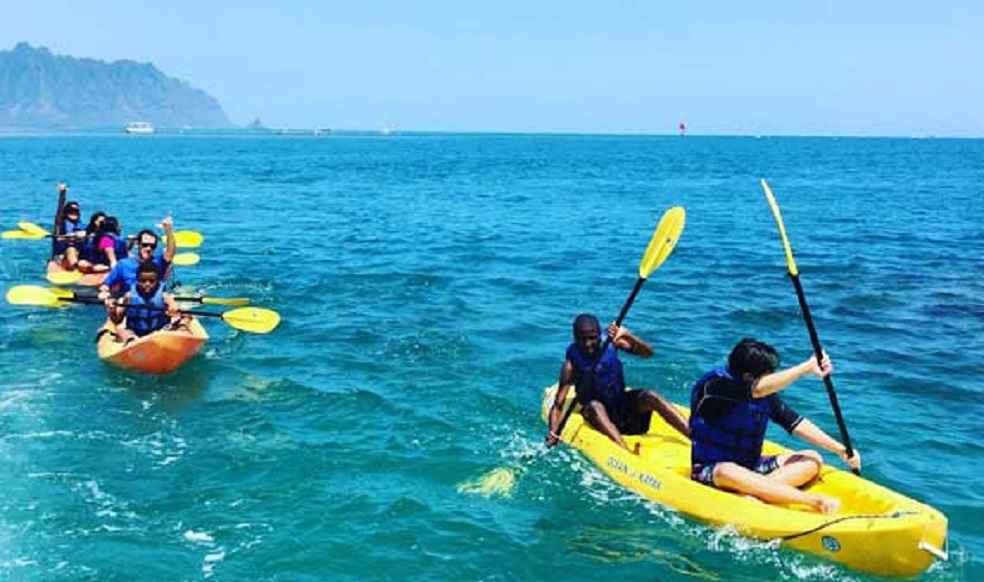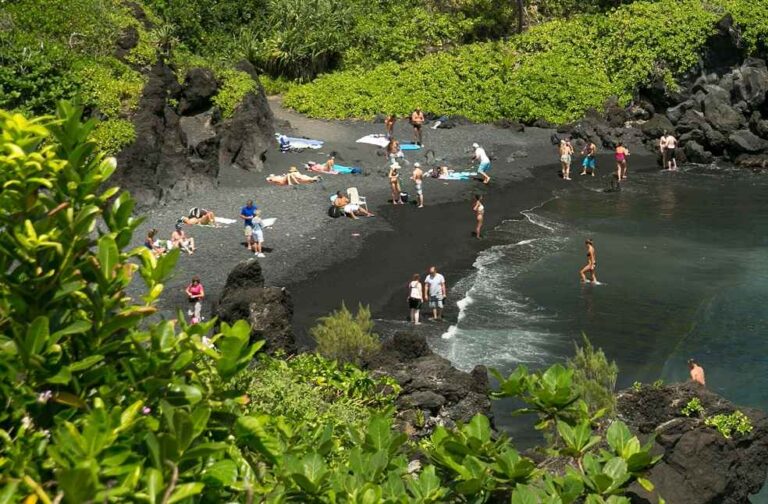Hawaii, a popular tourist destination, is considering implementing a fee or license for ecotourism activities to help fund conservation efforts. The state governor had initially proposed a $50 fee for all tourists entering the state, but legislators believe this would violate constitutional protections for free travel. Instead, they are considering requiring non-residents aged 15 and above to buy an annual license to visit state parks and trails.
The state’s leaders argue that the growing number of tourists travelling to the islands to enjoy its natural beauty, including some attracted by social media posts, necessitates the need for such a fee. Currently, most state parks and trails are free, while some of the most popular ones, like the Diamond Head State Monument, charge a fee of $5 for each visitor.
 Supporters of the fee argue that Hawaii’s conservation needs are great, with invasive pests attacking the state’s forests and a fungal disease killing a unique tree species, ohia, which forms the largest portion of the canopy in native wet forests. Some conservation work responds directly to tourism, such as the harassment of wildlife like dolphins, turtles and Hawaiian monk seals, and the inadvertent spread of invasive species by hikers into the forest on their boots. Snorkelers and boats also contribute to the stress on coral reefs already struggling with invasive algae and coral bleaching.
Supporters of the fee argue that Hawaii’s conservation needs are great, with invasive pests attacking the state’s forests and a fungal disease killing a unique tree species, ohia, which forms the largest portion of the canopy in native wet forests. Some conservation work responds directly to tourism, such as the harassment of wildlife like dolphins, turtles and Hawaiian monk seals, and the inadvertent spread of invasive species by hikers into the forest on their boots. Snorkelers and boats also contribute to the stress on coral reefs already struggling with invasive algae and coral bleaching.
The proposed fee would be in line with similar fees and taxes imposed by other tourism hotspots, like Venice in Italy, Ecuador’s Galapagos Islands, and the Pacific island nation of Palau. The latter charges arriving international passengers $100 to help it manage a sprawling marine sanctuary and promote ecotourism. While supporters say there’s no other place in the US that imposes a similar fee on visitors, Alaska charges each cruise ship passenger a tax of $34.50.

Some visitors have voiced their concerns about the proposed fee, saying that $50 is too high, especially for those who view a walk through nature as a low-cost activity. However, they also said they would support the fee if it is well-advertised and not a surprise expense. The legislation says that the proceeds from the fee or license would go into a visitor impact fee special fund managed by the state Department of Land and Natural Resources. The president and CEO of the Hawaii Lodging and Tourism Association, which represents hotels, supports the bill but cautions that the state must carefully monitor how the money is used to avoid any waste or mismanagement.



